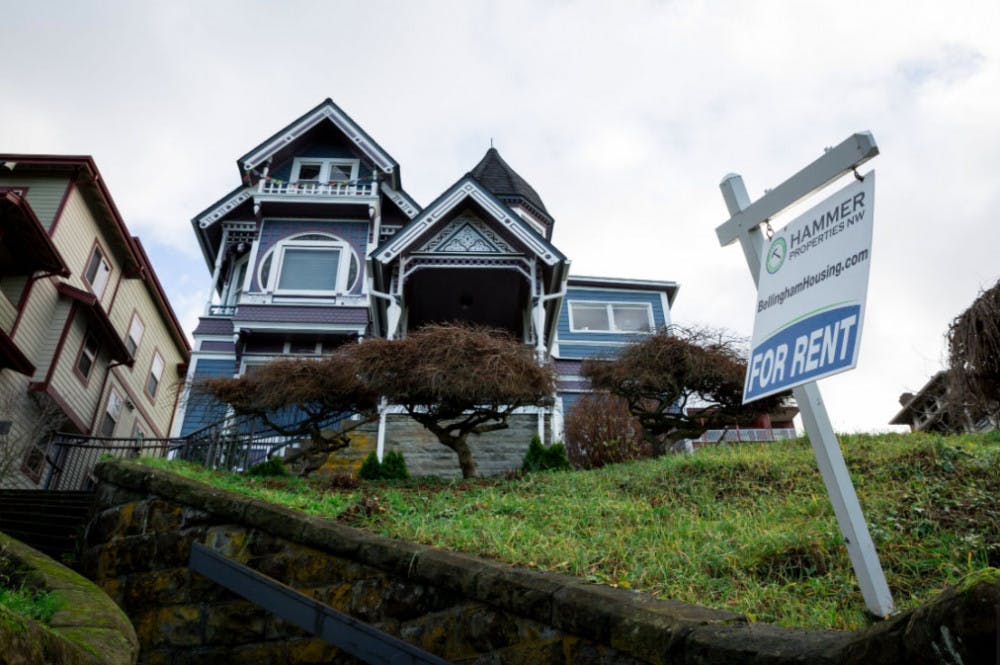The City of Bellingham Planning and Community Development members share news on how definition change will affect Western Washington University students

By Alison Ward
The City of Bellingham is considering changing how it defines families, potentially impacting Western Washington University students living off-campus. If amended, students may be allowed to live with more than three unrelated people.
The City of Bellingham Planning and Community Development members are developing a plan to amend the family definition municipal code which restricts people from living with three or more unrelated persons in a house or an apartment, according to the Bellingham Municipal Code Chapter 20.08.
The amendment would help students who need more roommates to pay for rent or simply want a more social living environment.
The code was originally created to control overcrowdedness in homes and disturbance in neighborhoods.
"One of the things that is part of students' development … is the experience that they have in the residence halls," said María Pérez de Henderson, an academic support counselor at Western. "It also promotes community building, so I definitely hope that this definition changes for the future of our students here for the reason that lifelong friendships are often made when students are residing together."
When students live with their parents or their guardians before heading to college, they are not exposed to housing-related bills, such as being fined for leaving trash on their property or disrupting neighbors.
It is clear to the development team and the Associated Students Office of Civic Engagement that students are not well educated on the family definition, which may explain the complaints towards college students.
Kurt Nabbefeld, Bellingham's development services manager for planning and community development, said these past years, the city has received many complaints about the family definition.
However, it is not about the number of people in the residence, but instead, behaviors like not taking out the trash or leaving trash around the property and throwing parties.
“You could have two people in a home that create a lot of issues with the neighbors and six people in a home and everything just works out fine and there are no issues, so it’s really about those behaviors,” Nabbefeld said.
In this case, putting a cap on the number of unrelated individuals you live with, with the family definition, does not resolve the issue of disturbance. If the family definition is changed, individuals' behaviors will be the focus, not the number of unrelated individuals living in a home.
"From a student's perspective … it seems like the family definition is outdated and not working for our community," said Natale Szabo, a Western student and an Associated Students Office of Civic Engagement local liaison student employee. "I think focusing more on the behaviors as parts of living in a community and in a neighborhood is a better move."
When someone breaks the family definition, the consequences focus on education rather than punishment. Renters could receive a letter from the city or be contacted by their landlord.
"We understand sometimes students or anyone involved may not know they are violating a code, and our goal is not to kick students or people out,” said Nabbefeld. "We work with them to fix the issue and fix that behavior, so it's not an issue for the neighbors or whoever called."
To amend the family definition, the development members have created five principles to guide that change.
According to Engage Bellingham, the focus is on protecting the health, privacy and safety of individuals, providing housing options that accommodate all types of families and the new reality of family while considering legal and enforcement issues linked with the city's current and possible future family definition.
"I was part of a sorority back home, and I got 11 sisters that I can call any time of day, and they'd be here," said Pérez de Henderson. "I really hope the city of Bellingham really takes into consideration that we are trying to make students on campus feel part of the Western community."
Rick Sepler said they don't have a set date for the planning commission meeting or the City Council presentation. Still, students should follow the rules and can get six people together in a residential multi-family zone, which is perfectly allowed.
Students and citizens are encouraged to send any feedback, questions and contact the committee at Engage Bellingham, familydefinition@cob.org, or the project website.
"It's important for everyone to be involved in this discussion … it's important to make sure your voice is heard,"Nabbefeld said. "We will be having public hearings on this in the future, both in front of the planning committee commission and in front of the City Council."





